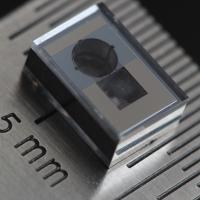MSCA PhD position available on the superradiant laser project
Offer Description
Optical atomic clocks represent the most precise measurement devices ever built, reaching stabilities and accuracies at the 10⁻¹⁸ level. They are enabling new applications ranging from fundamental tests of physics to relativistic geodesy and improved timekeeping. However, their performance is presently limited by the need for ultra-stable reference cavities. Superradiant lasers, based on collective emission of atoms on ultra-narrow transitions, offer a promising route to overcome this limitation and provide a novel type of ultrastable optical source.
Our research project at FEMTO-ST
At FEMTO-ST, we are developing a new experimental platform for superradiant lasing on the ytterbium clock transition. The setup includes a cold ytterbium magneto-optical trap (MOT) and a high-finesse Fabry–Perot cavity that are currently under characterization. The next milestones are to transport cold atoms into the cavity and observe the first superradiant pulses. The doctoral candidate will play a central role in advancing the system from pulsed to continuous operation.
The project is structured around two main objectives. First, the candidate will implement controlled superradiant lasing, ensuring the continuous injection and state preparation of atoms in the cavity, as well as repumping schemes to recycle atoms from the ground state back to the metastable 3P0 level. Success will enable semi-continuous emission, limited mainly by heating and atomic lifetime.
Second, the candidate will develop continuous operation with sequential reloading. This approach relies on alternating between two ensembles of atoms: while one ensemble lases inside the cavity, the other is prepared for the next cycle. A key scientific challenge will be the synchronization of the atomic dipoles between ensembles, in collaboration with theory groups from QuRIOUS network. Achieving this goal would represent the first demonstration of a continuous superradiant laser on a clock transition. The doctoral candidate will also conduct metrological characterization of the source, including stability measurements.
The QuRIOUS doctoral network program
This PhD position is part of the QuRIOUS Doctoral Network (www.quriousclocks.eu), funded by the European Union’s Marie Skłodowska-Curie Actions. QuRIOUS brings together leading European groups in physics, engineering, and metrology to train the next generation of researchers in quantum clocks and sensors. The network offers international secondments, joint training events, and close interaction with an international cohort of doctoral fellows. The doctoral candidate will have the opportunity to do secondments in partner laboratories and will receive training in several European universities and private companies from the QuRIOUS network.
Skills/Qualifications
Master’s degree (or equivalent) in physics, preferably with a background in atomic, molecular and optical (AMO) physics, quantum optics, or experimental laser physics.
Basic knowledge or experience with one or more of the following: cold atoms, laser systems, optical frequency combs or metrology.
Motivation to acquire expertise in detection and frequency metrology methods, including spectral measurements and comparisons with ultra-stable frequency references.
Ability to work in an international and interdisciplinary research environment, with good communication skills in English.
Specific Requirements
Strong educational background in AMO experimental physics and cold atom physics.
Previous hands-on experience in experimental physics (at minimum in optics; experience with cold atoms, atomic clocks, or quantum optics is highly valued).
Excellent aptitude for teamwork in collective experimental efforts.
Strong personal qualities of curiosity, intellectual honesty, perseverance, and scientific rigor.
Proficiency in written and spoken English
Eligibility (MSCA mobility rule): Candidates must not have resided or carried out their main activity (work, studies, etc.) in France for more than 12 months in the 3 years immediately before the recruitment date. They must also not already hold a doctoral degree.
Other offers from network members can be found here.
How to apply:
Please send your application by email to marion[dot]delehaye[at]femto-st[dot]fr, including:
- Your curriculum vitae (CV)
- A motivation letter
- The names and contact information of 2–3 people who can provide references

